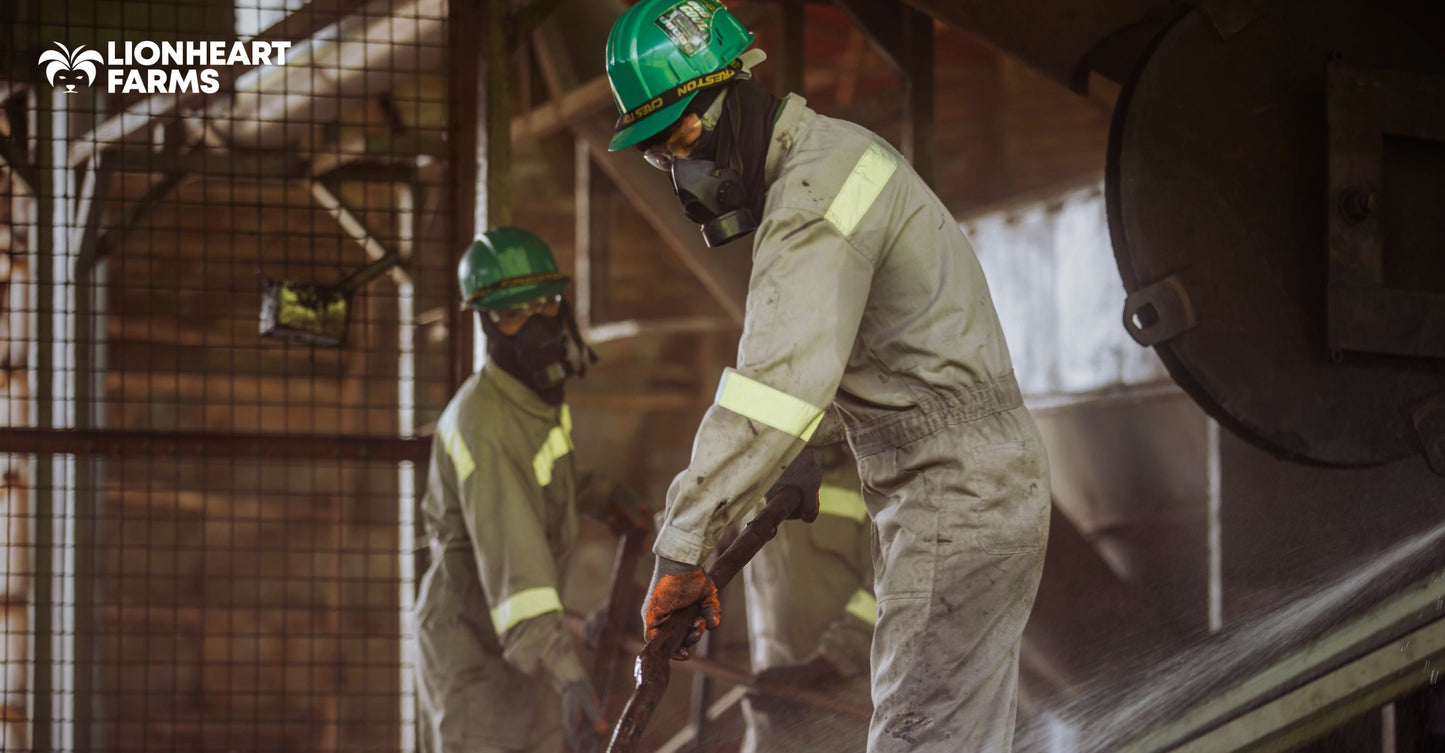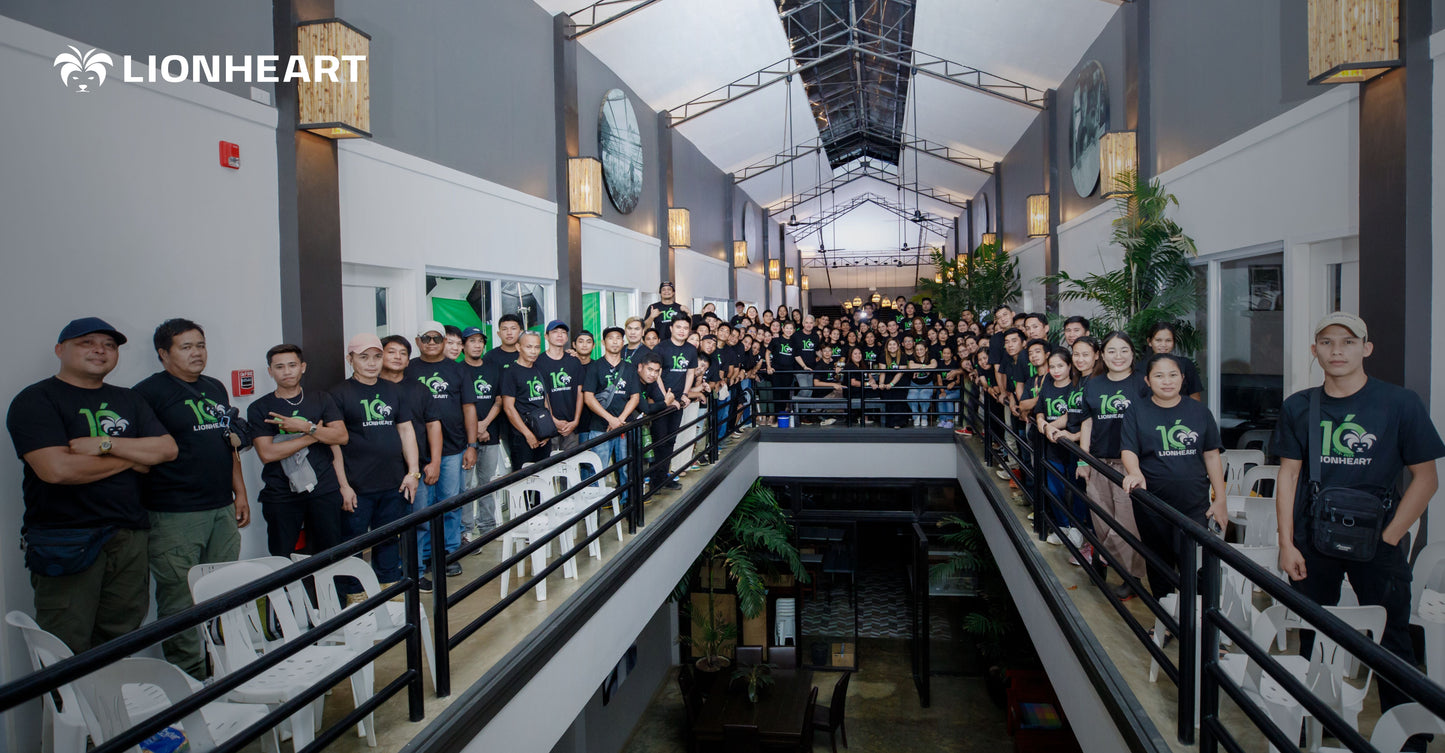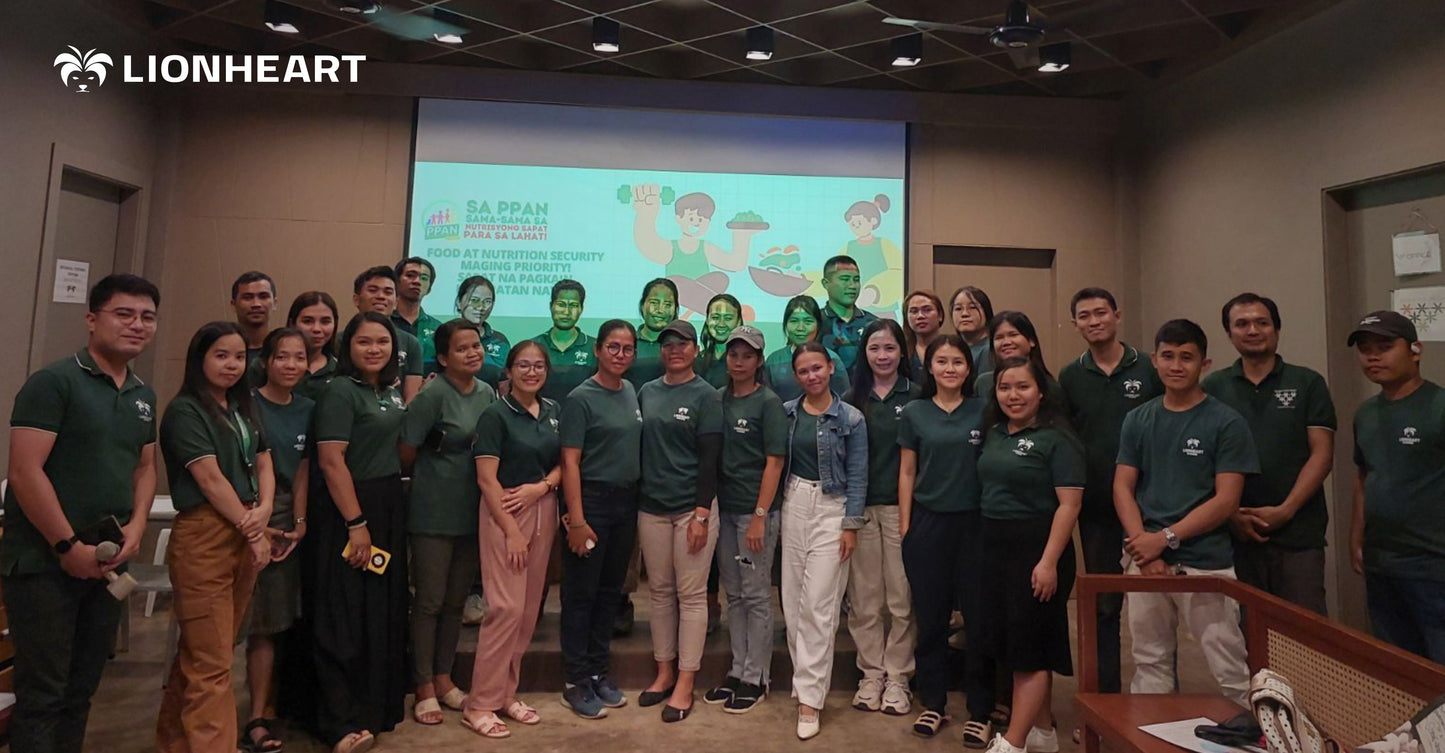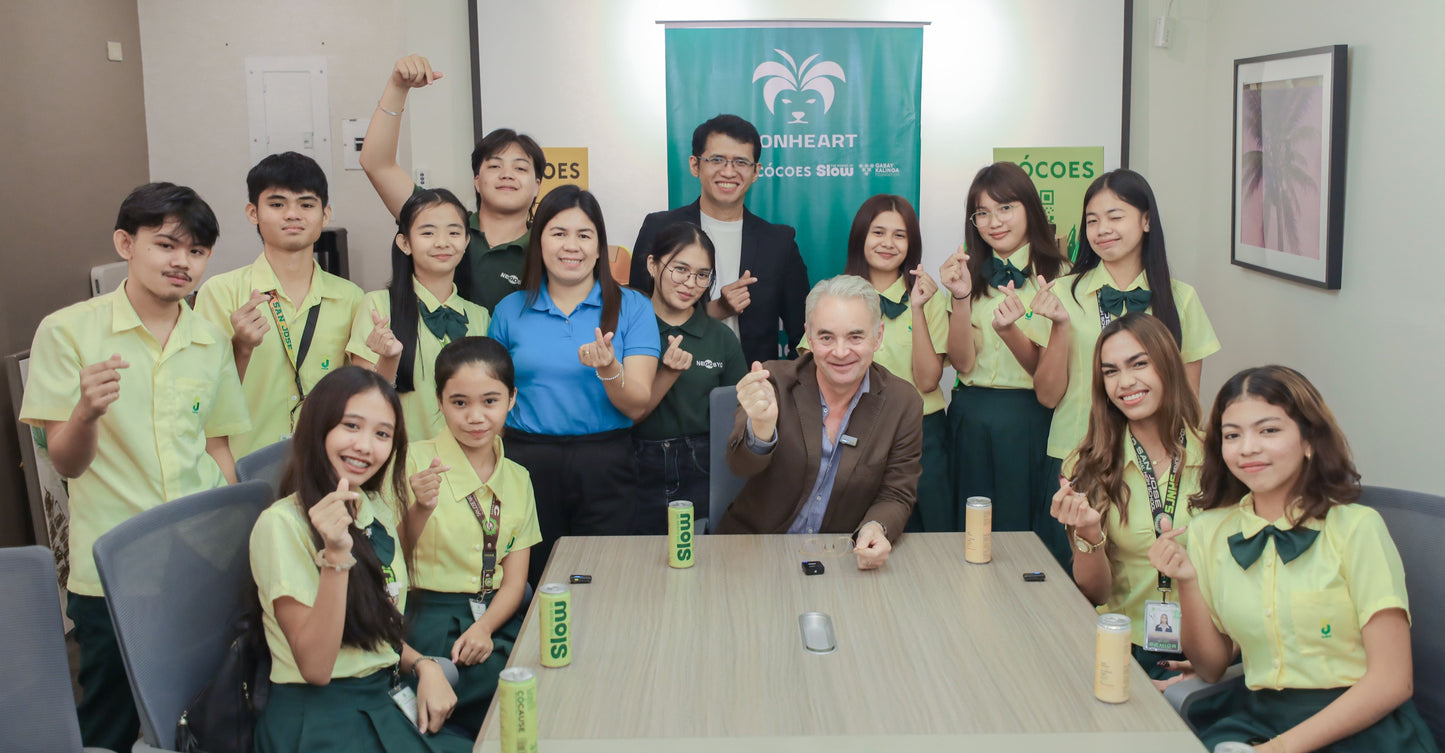
Sustainable agriculture means more than just a farming practice. It’s a way to restore and enrich the land for future generations. This commitment to the environment and community is embedded in every step of our fertilizer production process. From bio-organic fertilizers (BOF) to various organic foliar fertilizers, each component is chosen carefully to enhance soil health and crop productivity. By using regenerative practices, Lionheart Farms sustains its coconut plantations while also strengthening the local economy and promoting biodiversity.
Diverse Approach to Fertilization
Lionheart Farms relies on two main fertilizer types to nourish its coconut palms: bio-organic fertilizer (BOF) and organic foliar fertilizers.
1. Bio-Organic Fertilizer (BOF) is a compost-based fertilizer made from coconut peat, rice hulls, carbonized rice hull, and either animal or green manure. These materials are combined into 50-ton heaps. Then, a mix of organic foliar fertilizers is added to inoculate the heap with beneficial microorganisms. This fertilizer enriches the soil, improves its structure, and fosters microbial activity. In turn, this creates a fertile foundation for our coconut palms.
2. Organic Foliar Fertilizers is a nutrient-rich solution applied directly to plant leaves, delivering essential nutrients faster than soil-based methods. It provides immediate support for growth needed for flowering. The production process of organic foliar fertilizer involves a combination of local, organic ingredients. Each type of foliar fertilizer has a specific purpose and nutrient profile, including ingredients such as the following:
- - Tichoderma
- - Cooked rice and molasses (for IMO2, which introduces indigenous microorganisms)
- - Ripe fruits and molasses (for Fermented Fruit Juice, or FFJ)
- - Banana stems and molasses (for Fermented Plant Juice, or FPJ)
- - Fish and molasses (for Fish Amino Acid, or FAA)
- - Kuhol snails and molasses (for Kuhol Amino Acid, or KAA)
- - Garlic, ginger, vinegar, and molasses (for Organic Herbal Nutrients, or OHN)
- - Animal bones and vinegar (for Calcium Phosphate, or CALPOS)
- - Rice wash and fresh milk (for Lactic Acid Bacteria Serum, or LABS) and
- - Seaweed and molasses (for Seaweed Liquid Fertilizer, or SLF)
These materials are mixed with molasses in 200-liter plastic drums, where they ferment for 14 days. Once fermentation is complete, the fertilizer is extracted and stored in sealed containers. It will be then kept in a shaded, cool area until it’s ready for application.
Local Sourcing of Components
Our approach to sourcing ingredients reflects our commitment to sustainability and community partnership. Most of the raw materials for our fertilizers are purchased from nearby communities. By sourcing out fertilizer components from the local community, it creates a sustainable supply chain and supports the local economy. Working with local suppliers ensures the quality of ingredients and strengthens our relationship with surrounding communities. This collaboration is a key part of our regenerative agriculture model.
Large-Scale Fertilizer Production
Producing a variety of fertilizers on a large scale is a complex task. Each month, we produce around 600 tons of bio-organic fertilizer, and approximately 5,000 to 8,000 liters of organic foliar fertilizers. This output not only enables us to consistently provide nutrients to our coconut palms, but also supports our commitment to sustainable practices. This large-scale production allows us to keep our crops thriving and supports the long-term vitality of our soil and environment.
Fertilizer Application Methods
We apply each type of fertilizer with precision and care. Bio-organic fertilizer is applied through a top-dressing and deep-placement method. This involves layering it around the plants, enriching the root zone and making nutrients more accessible to the crops. Foliar fertilizers are diluted and sprayed directly onto the leaves using a knapsack sprayer. This allows the plants to absorb the nutrients directly through their leaves, bypassing the soil for a faster nutrient boost.
Monitoring Effectiveness
To ensure our fertilizers are effective, we monitor soil quality, track yield performance, and assess plant health. Through regular soil testing, we measure nutrient levels and observe soil structure over time to gain insights into its fertility. We also track crop yields to understand how well the fertilizers support growth and productivity. Furthermore, we do plant health assessments to help us spot any signs of nutrient deficiency or stress. By monitoring these factors, we can make adjustments to fertilizer formulations or application methods to ensure sustained crop health and maximize yields.
A Commitment to Sustainable Agriculture
Lionheart Farms’ innovative fertilization practices support both our coconut plantations and our environmental goals. By using organic, locally sourced ingredients and regenerative agricultural techniques, we contribute to soil health, biodiversity, and carbon sequestration. This closed-loop system of composting and recycling organic materials reduces waste and nurtures the soil. It’s a sustainable foundation that supports long-term growth.
This approach to sustainable agriculture is central to our mission. Our fertilizer practices not only enhance the productivity of our crops but also contribute to environmental preservation and local economic growth. We strive to set an example for sustainable farming in the Philippines and beyond by creating a farming model that works in harmony with nature.
Through these innovative fertilizer methods, Lionheart Farms demonstrates how agriculture can be both productive and sustainable, ensuring a healthy future for our land and community.




